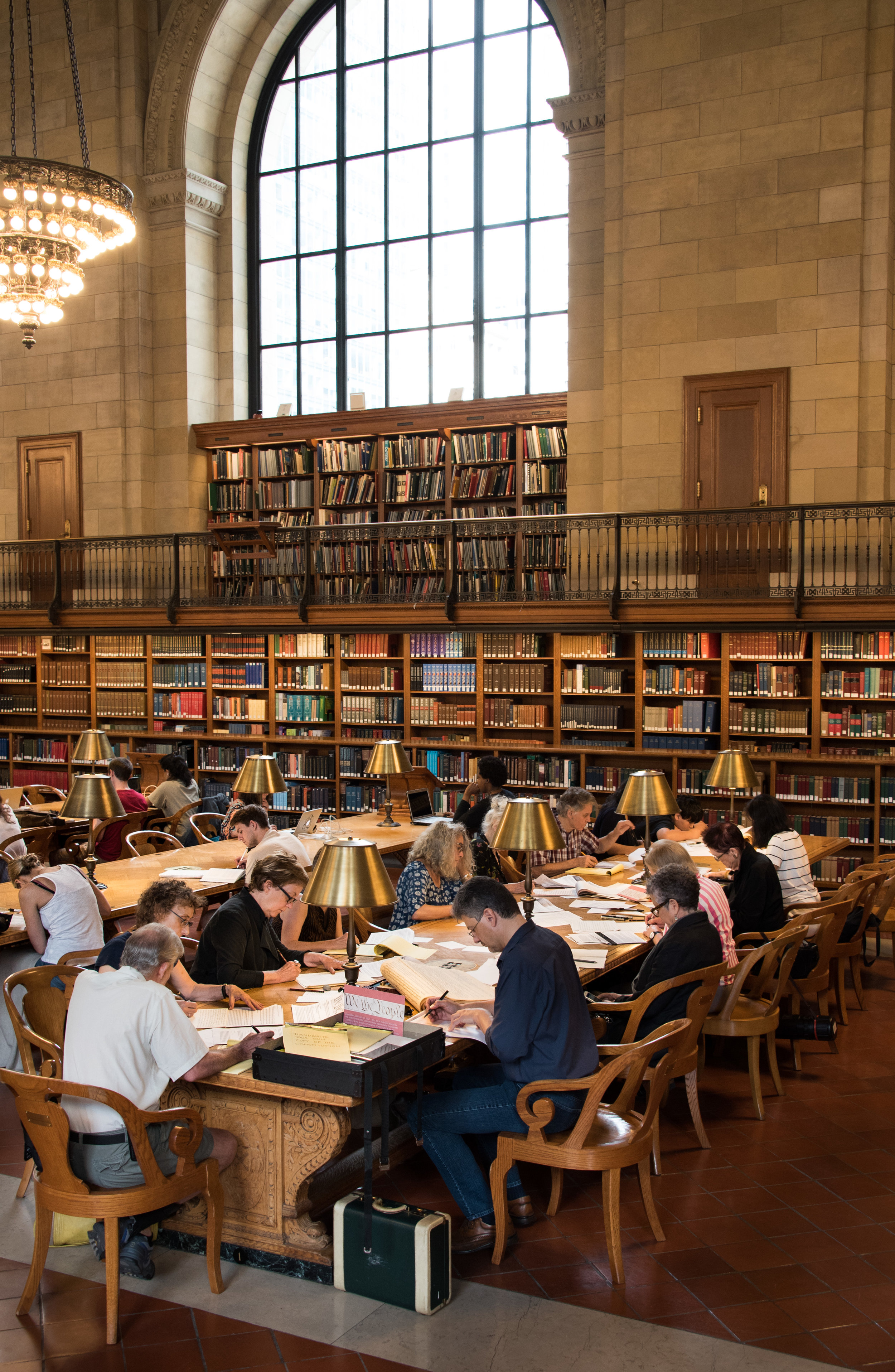2017
STATEMENT OF PURPOSE / HANDWRITING THE CONSTITUTION
On 5 January 2017, I woke up with the idea of copying the Constitution by hand. While I often hand-copy texts as part of my art practice, I hadn’t thought much about the Constitution before. I only knew I wanted to do it, and to do it with others in a public space.
I love the openness and beauty of the Rose Main Reading Room at the New York Public Library. On Inauguration Day I went to the library with a small suitcase of pens, a few Sharpies, papers and copies of the Constitution. I brought old notebooks, half-used drawing pads and loose sheets to share with anyone who might show up. I began writing.
Soon, others joined me: a friend, then another friend, then people I didn’t know at all who saw the work in progress. That first session drew eight or nine people, writing carefully, studying, reflecting on the document intended to protect our basic rights. We have held sessions every month since, with different people each time, and I will continue.
Hand copying a document can produce an intimate connection to the text and its meaning. The handwriter may discover things about this document that they never knew, a passage that challenges or moves them. They may even leave with a deeper connection to the founders and the country, or even a sense of encouragement.
I began this project motivated by psychological necessity. I now see it as a social art practice. My hope is that it will become a movement of sorts, with sessions throughout the country. It is important for us to become more intensely aware of our rights as citizens so that should history begin to impinge on these rights, we will see what is happening in time to act.
Morgan O'Hara
As long as people are people, democracy, in the full sense of the word, will always be no more than an ideal. One may approach it as one would the horizon in ways that may be better or worse, but it can never be fully attained. In this sense, you, too, are merely approaching democracy. You have thousands of problems of all kinds, as other countries do. But you have one great advantage: You have been approaching democracy uninterruptedly for more than 200 years, and your journey toward the horizon has never been disrupted by a totalitarian system.
VÁCLAV HAVEL's speech to the UNITED STATES CONGRESS
February 1990
The power of a country road when one is walking along it is different from the power it has when one is flying over it by airplane. In the same way, the power of a text when it is read is different from the power it has when it is copied out. The airplane passenger sees only how the road pushes through the landscape, how it unfolds according to the same laws as the terrain surrounding it. Only he who walks the road on foot learns the power it commands, and of how, from the very scenery that for the flier is only the unfurled plain, it calls forth distances, belvederes, clearings, prospects at each of its turns like a commander deploying soldiers at a front. Only the copied text thus commands the soul of him who is occupied with it, whereas the mere reader never discovers the new aspects of his inner self that are opened by the text, that road cut through the interior jungle forever closing behind it: because the reader follows the movement of his mind in the free flight of daydreaming, whereas the copier submits it to command.
WALTER BENJAMIN The Power of a Text from ONE-WAY STREET



